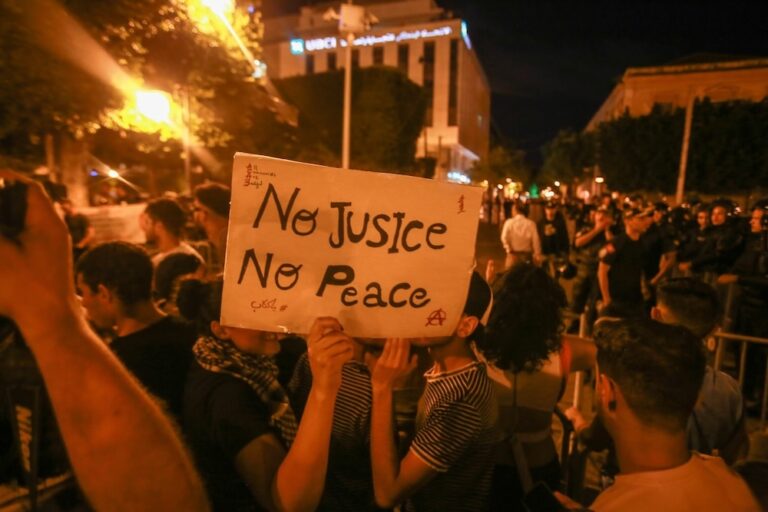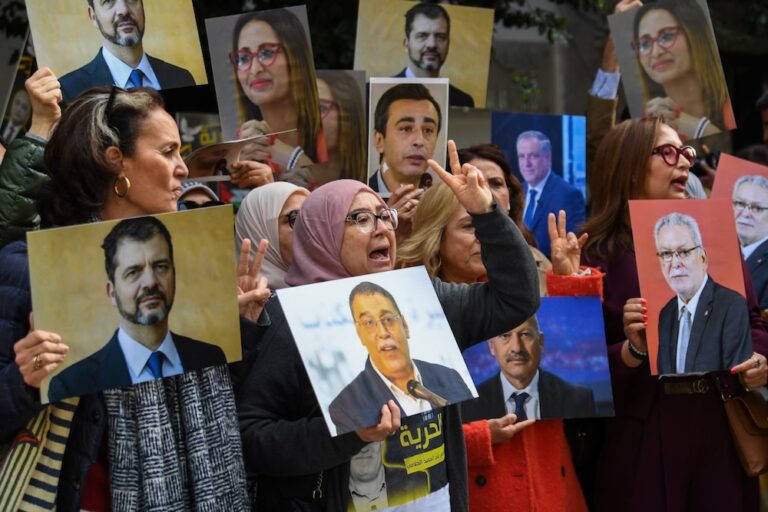Fahem Boukadous, who recently emerged from 17 months in hiding, was sentenced for the second time over his coverage of violent labor demonstrations in the Gafsa mining region.
(CPJ/IFEX) – New York, January 15, 2010 – The Committee to Protect Journalists urges the Tunisian judiciary to reverse on appeal the Wednesday decision of a Tunisian court in the southern town of Gafsa to sentence Fahem Boukadous, correspondent for the satellite television station Al-Hiwar Al-Tunisi, to a four-year prison term.
Boukadous told CPJ he had been sentenced in absentia in December 2008 to six years in prison on charges of “belonging to a criminal association” and spreading materials “likely to harm public order” following his coverage of violent labor demonstrations in the Gafsa mining region. The sentence was upheld on appeal in February 2009.
Having been tried in absentia, Boukadous objected to the ruling after emerging from 17 months in hiding. The court annulled the previous decisions and tried him again on the same charges. Boukadous said he remains free until an appeals hearing scheduled for February.
“We call on the court to overturn this sentence against Fahem Boukadous on appeal,” said Mohamed Abdel Dayem, CPJ’s Middle East and North Africa program coordinator. “We urge the Tunisian government to put an end to its ongoing harassment of independent journalists and media and to abide by the domestic laws guaranteeing freedom of expression as well as the International Covenant on Civil and Political Rights, which Tunis has ratified.”
Boukadous told CPJ that his hearing lasted 10 minutes, and that the judge asked him only one question, about his ties to a recent social movement in Gafsa by labor leaders and miners and others over poor wages and work conditions in southern Tunisia. “This is clearly a political decision,” he said. “I told the court that I was only doing my duty (as a) journalist, reporting on the events that shook Gafsa.”
Two other journalists are currently serving prison sentences in Tunisia on trumped-up charges in retaliation for critical coverage of President Ben Ali and his ruling party.


